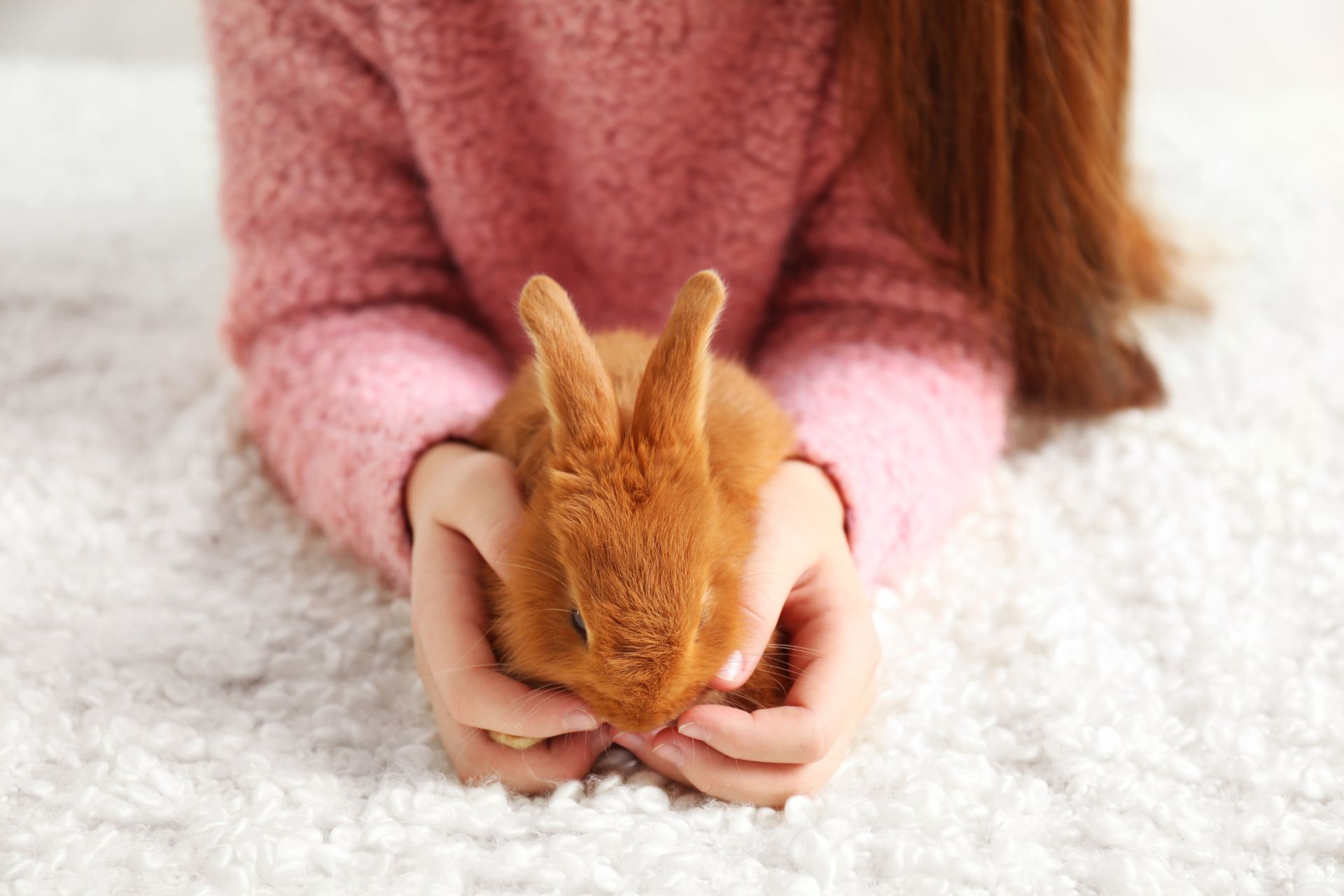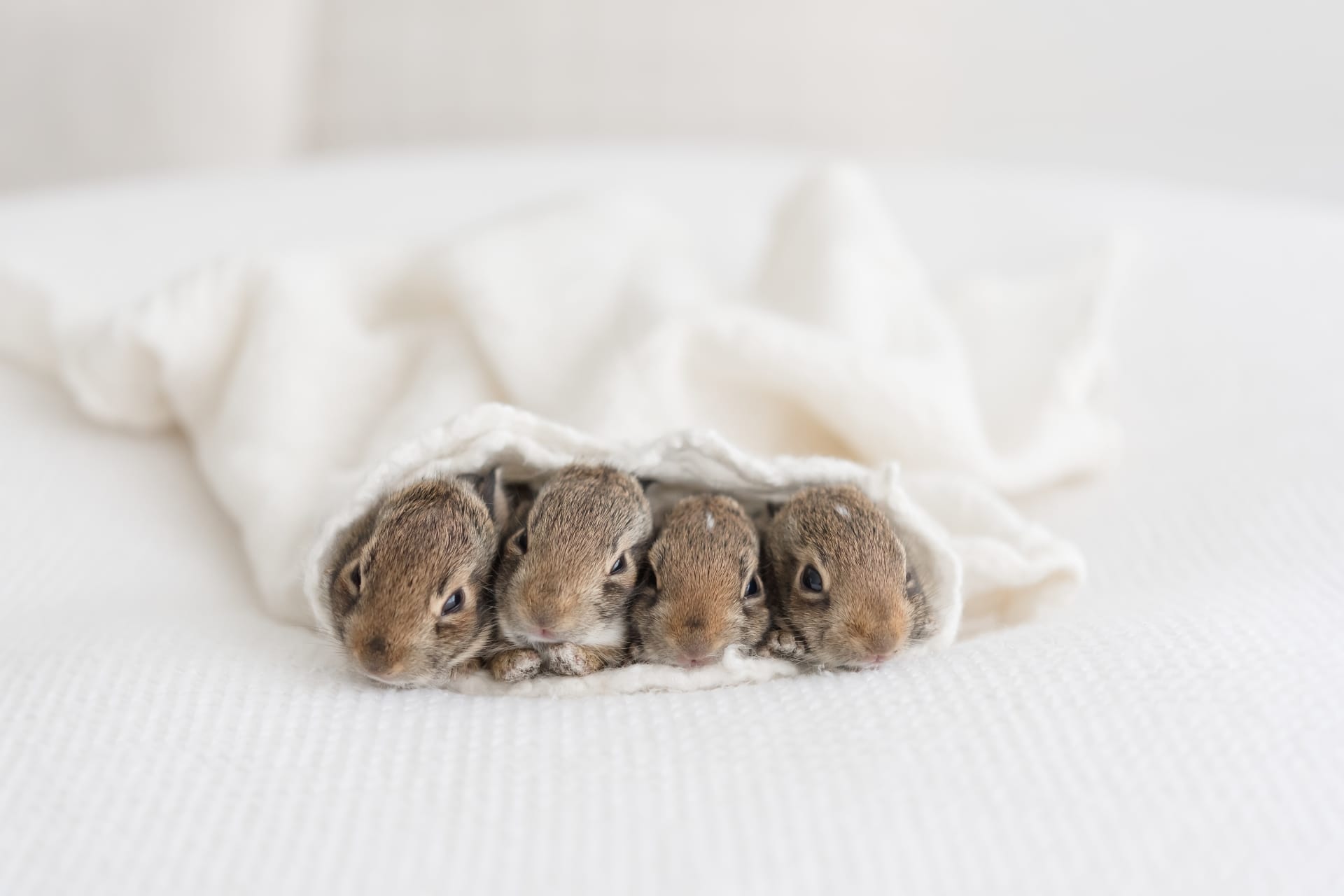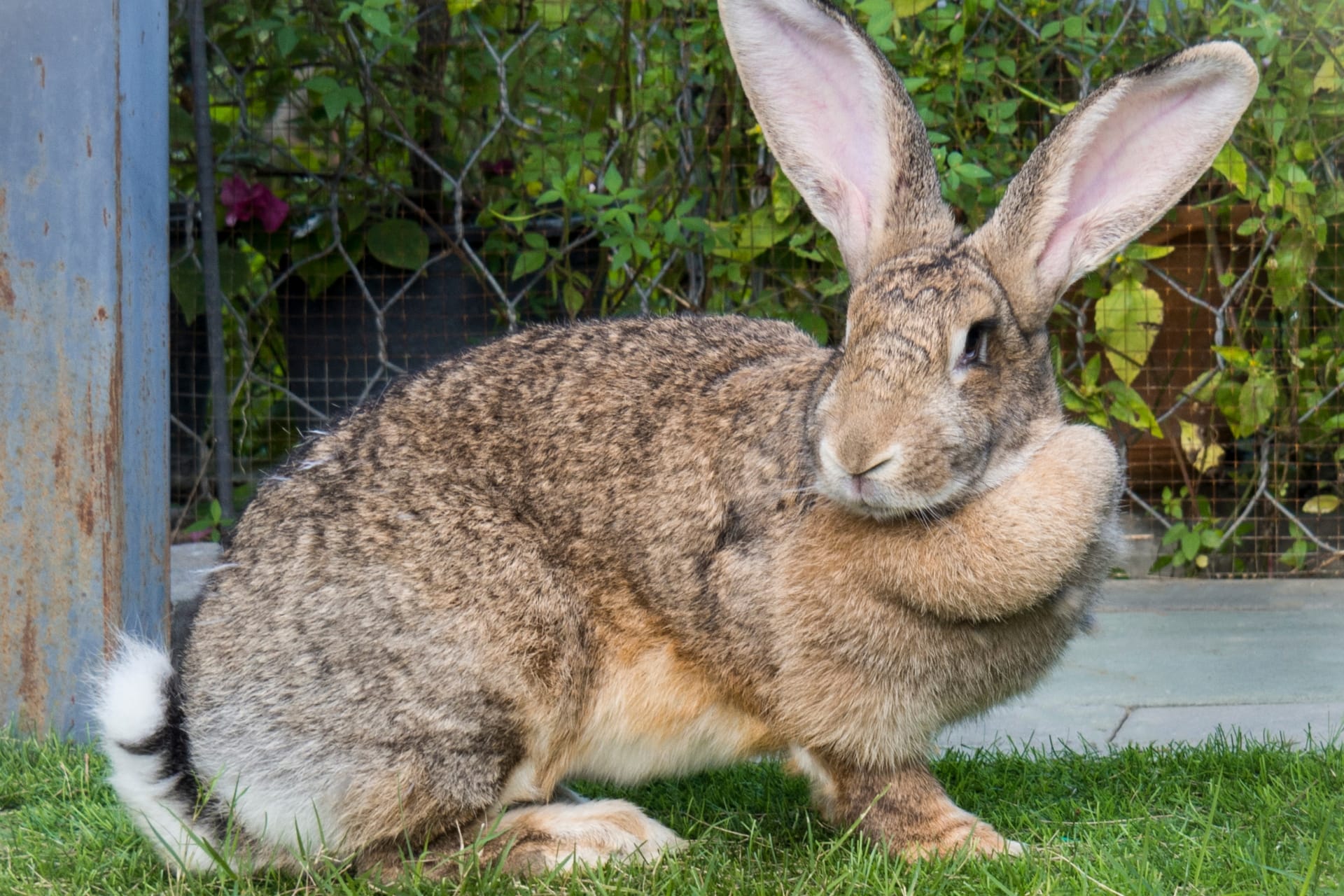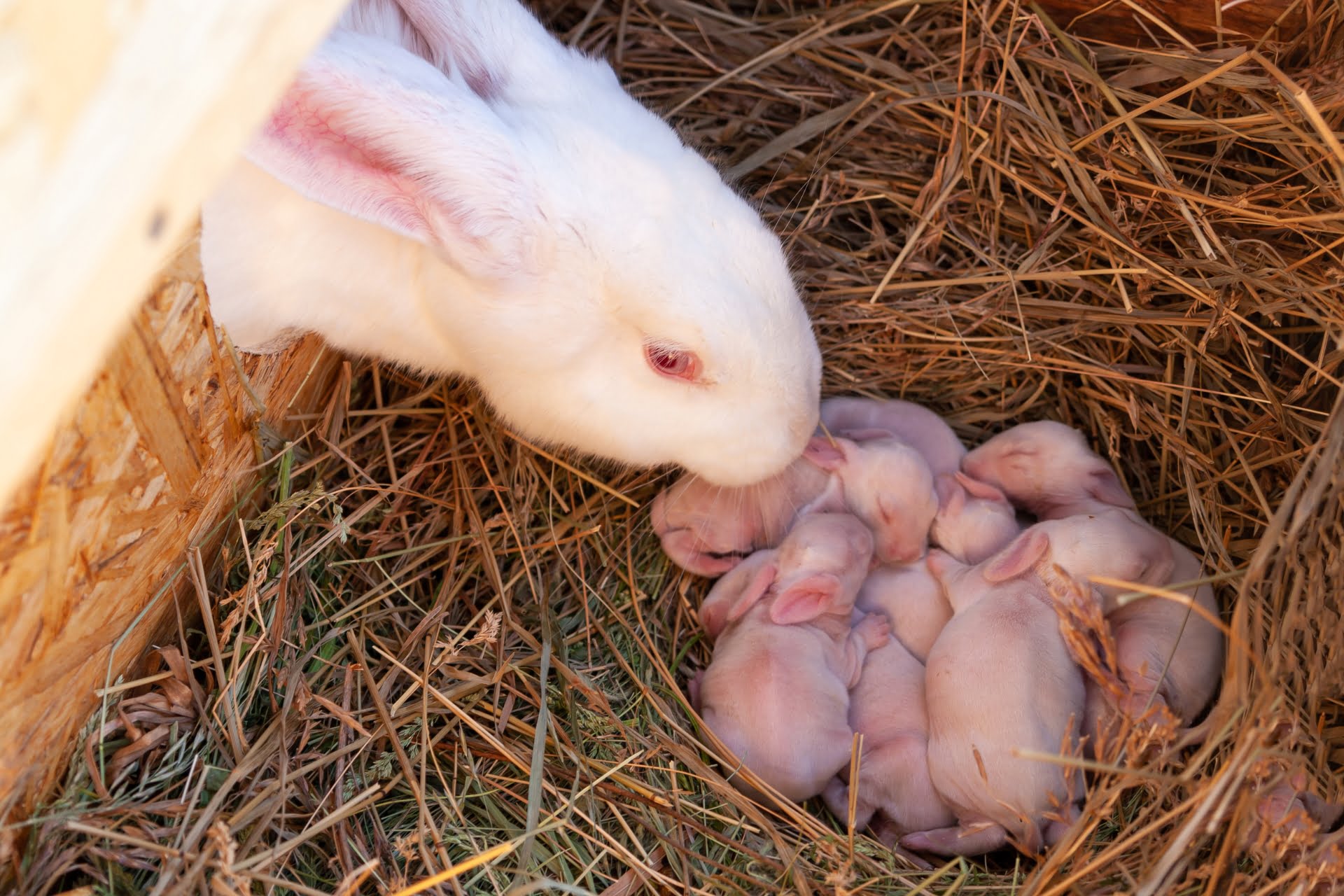Small rabbits make wonderful companions, bringing joy and warmth to our lives. When choosing a small rabbit breed, consider factors such as size, temperament, maintenance requirements, and lifespan. Netherland Dwarfs, Holland Lops, Mini Rexes, Lionheads, and Miniature Lion Lops are popular choices. Ensure proper care, including suitable housing, a balanced diet, regular exercise, grooming, and veterinary check-ups. Be aware of common health concerns and provide socialization, training, and enrichment to foster a strong bond with your rabbit. Remember, owning a small pet rabbit requires commitment, love, and attention to ensure a happy and fulfilling relationship.
Contents
- Introduction
- Factors to Consider when Choosing a Small Rabbit Breed
- Popular Small Rabbit Breeds
- Care and Maintenance of Small Rabbit Breeds
- Health Concerns for Small Rabbit Breeds
- Bonding and Interaction with Small Rabbit Breeds
- Conclusion
- FAQs
Introduction
When it comes to small and adorable pets, rabbits are among the top choices for many people. These furry creatures not only bring joy and companionship but also provide endless entertainment with their playful nature. If you’re considering getting a small rabbit, it’s essential to choose the right breed that fits your lifestyle and preferences. In this article, we will explore different small rabbit breeds, discuss the factors to consider when selecting one, and provide insights into their care, health concerns, and bonding.
Factors to Consider when Choosing a Small Rabbit Breed
- Size
Small rabbit breeds vary in size, ranging from compact to medium-sized. The size of the rabbit breed should align with the available space in your home. Smaller breeds, like the Netherland Dwarf, require less space and are suitable for apartments or smaller living areas. On the other hand, medium-sized breeds, such as the Holland Lop or Mini Rex, need more room to hop around.
- Temperament
Each rabbit breed has its unique temperament traits. Some are known for being more docile and relaxed, while others may be more active and energetic. Consider your own personality and the kind of interaction you desire with your rabbit. If you prefer a calmer and laid-back companion, breeds like the Holland Lop or Lionhead can be a good fit. For those seeking a playful and curious rabbit, the Mini Rex or Netherland Dwarf might be more suitable.
- Maintenance
The maintenance requirements of small rabbit breeds can vary. Some breeds have longer fur that requires regular grooming to prevent matting and keep their coat in good condition. Breeds like the Lionhead or Miniature Lion Lop fall into this category. Shorter-haired breeds, such as the Netherland Dwarf or Holland Lop, may require less grooming but still benefit from occasional brushing. Consider the time and effort you’re willing to invest in grooming when selecting a breed.
- Lifespan
The lifespan of small rabbit breeds can range from 7 to 12 years or even longer with proper care. Understanding the potential lifespan of the breed you choose is crucial for long-term commitment. It’s important to be prepared for the responsibility and commitment involved in providing a loving and caring environment for your rabbit throughout its life.
Popular Small Rabbit Breeds
- Netherland Dwarf
The Netherland Dwarf is one of the smallest rabbit breeds, known for its compact size and adorable appearance. They have a friendly temperament and come in various colors. Due to their small size, they require less space and are suitable for both indoor and outdoor environments.

- Holland Lop
The Holland Lop is a charming breed with floppy ears that make it irresistibly cute. They are known for their gentle nature and make excellent companions for families. Holland Lops come in various colors and have a compact size, making them suitable for apartment living.

- Mini Rex
The Mini Rex is a breed admired for its plush and velvety fur. They have a playful and outgoing personality, making them great for interactive playtime. Mini Rex rabbits come in a wide range of colors and have a medium-sized build.

- Lionhead
The Lionhead rabbit breed is recognized by its distinctive mane-like fur around the head, resembling that of a lion. They have a friendly and sociable nature, enjoying human interaction. Lionheads require moderate grooming to maintain their impressive mane.

- Miniature Lion Lop
The Miniature Lion Lop is a crossbreed between the Lionhead and the Holland Lop. They inherit the Lionhead’s mane and the Holland Lop’s floppy ears, resulting in an adorable combination. These rabbits have a sweet temperament and are suitable for families with children.

Care and Maintenance of Small Rabbit Breeds
Housing
Small rabbits need a comfortable and safe living environment. Provide them with a spacious cage or hutch that allows for easy movement and has ample ventilation. Make sure to include bedding, such as straw or wood shavings, for their comfort. Additionally, provide a separate area for them to exercise and stretch their legs, such as a rabbit playpen or a rabbit-proofed room.
Diet
A balanced diet is essential for the health and well-being of small rabbits. Their diet should consist mainly of hay, fresh vegetables, and a limited amount of pellets. Hay helps maintain their dental health and aids in digestion. Fresh vegetables like leafy greens and herbs provide important nutrients. Pellets should be high in fiber and given in moderation.
Exercise
Small rabbits are active animals that require regular exercise to stay healthy and happy. Allow them daily supervised time outside their enclosure to explore and hop around in a safe and secure area. You can also provide toys and tunnels to stimulate their natural behavior and keep them entertained.
Grooming
Grooming is an important aspect of maintaining the health and appearance of small rabbits. Regularly brush their fur to remove loose hair and prevent matting. Trim their nails when necessary to avoid overgrowth. Additionally, check their ears and teeth regularly for any signs of infection or dental issues.
Health Concerns for Small Rabbit Breeds
- Dental Health
Small rabbits have continuously growing teeth, and dental problems can arise if their teeth are not properly worn down. Provide them with appropriate chew toys and ensure their diet includes hay, which helps keep their teeth in good condition. Regularly monitor their teeth for signs of overgrowth or other dental issues.
- Digestive Health
Rabbits have a delicate digestive system that requires a high-fiber diet. Insufficient fiber intake can lead to digestive problems like gastrointestinal stasis. Ensure they have access to fresh hay at all times and provide a variety of leafy greens to promote healthy digestion.
- Parasite Prevention
Parasites, such as fleas, mites, and worms, can affect the health of small rabbits. Regularly check your rabbit for signs of infestation, such as itching, fur loss, or abnormal feces. Consult with a veterinarian to establish a preventive treatment plan.
- Vaccinations
Vaccinations are essential for protecting small rabbits against common diseases, such as rabbit hemorrhagic disease and myxomatosis. Consult with a veterinarian to ensure your rabbit’s vaccination schedule is up to date.
Bonding and Interaction with Small Rabbit Breeds
- Socialization
Small rabbits are social animals and thrive on companionship. Spend quality time with your rabbit to build a strong bond. Engage in gentle petting, play interactive games, and provide them with opportunities to interact with other rabbits if possible.
- Training
Training your small rabbit can be a rewarding experience. Use positive reinforcement techniques, such as treats and praise, to encourage desired behaviors. Teach them basic commands like coming when called or using a litter box.
- Enrichment
Enrichment activities are crucial for keeping small rabbits mentally stimulated. Provide them with toys, tunnels, and puzzle feeders to prevent boredom and encourage natural behaviors. Rotate their toys regularly to maintain their interest.
Conclusion
In conclusion, small rabbit breeds offer a delightful addition to any household. Their compact size, adorable features, and unique personalities make them wonderful companions. When selecting a small rabbit breed, consider factors such as size, temperament, maintenance requirements, and lifespan to ensure the perfect fit for your lifestyle.
FAQs
- Can small rabbits be kept outdoors?
- While small rabbits can be kept outdoors, it’s important to provide a safe and predator-proof enclosure. Outdoor rabbits should have proper shelter, protection from extreme weather conditions, and ample space to exercise.
- How often should I groom my small rabbit?
- The grooming frequency depends on the breed and coat type of your small rabbit. Long-haired breeds may require daily or weekly brushing, while short-haired breeds may need grooming once or twice a month. Regularly check their fur, nails, ears, and teeth for any signs of issues.
- Are small rabbits good pets for children?
- Small rabbits can make good pets for children with proper supervision and guidance. It’s essential to teach children how to handle rabbits gently and respect their needs for a safe and calm environment.
- How long do small rabbit breeds live?
- Small rabbit breeds typically live between 7 to 12 years, but their lifespan can vary depending on genetics, diet, care, and overall health.
- What are the common health issues in small rabbits?
- Common health issues in small rabbits include dental problems, digestive disorders, respiratory issues, and parasite infestations. Regular veterinary check-ups and a balanced diet can help prevent these issues.











